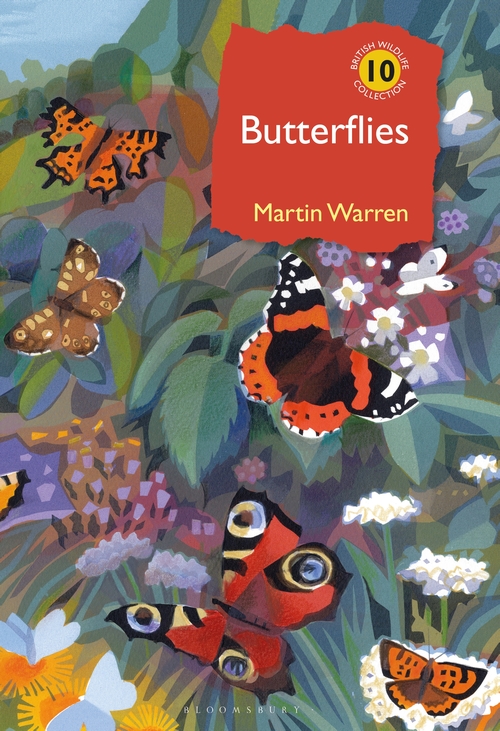
Arguably, there are too many natural history books published these days – but this isn’t one of the surplus. This is an excellent read and packed full of information from an acknowledged expert of many years standing.
Martin Warren is the former Chief Executive of Butterfly Conservation (I was actually on the interview panel which appointed him) and has a string of scientific papers on butterflies to his name. He knows his butterflies and has been active in the conservation world, where he is much-liked and highly respected, for decades. But that doesn’t mean that he can write a stunningly good book about the biology and conservation of those insects – but he has!
The book takes us on a logical journey through butterflies in culture, their biology and increasing details of the ecology of the UK species, and then on to their status, conservation problems and potential solutions. Throughout, one feels one is being led through the issues by someone who knows their stuff and cares deeply about the species involved and the issues they face. There is a good mix of objective explanation and enthusiasm for the species, habitats and places covered. And I very much enjoyed the examples and insights from Martin’s own studies.
If you like butterflies (who doesn’t?), care about them (who wouldn’t?) and want to understand them better then this is a book for you. It’s difficult to imagine that this will be anything other than a trusted, useful addition to your bookshelves for at least the decade to come.
If, like me, your interest in butterflies is strong but your knowledge weak, then this is a particularly useful book, the reading of which made my inner voice say ‘Ah right, I see’ many times.
I’ve sat in many meetings with Martin, and I’ve been out in the field with him just a few times. This is the type of masterful synthesis that I hoped he would produce and it’s so good to see that he has. Later this month I will be examining the garlic mustard in my garden to look for the orange eggs of Orange Tips because it’s such fun to find them and because it reminds me of the day when Martin showed me such eggs on cuckoo flowers in Dorset.
Any UK conservationist should read this book to get a better insight into what invertebrate conservation requires compared with the easy groups such as mammals and birds. Effective conservation depends on a true understanding of the underlying biology of the species concerned and, obviously, butterflies aren’t quite the same as Beavers or Red Kites. But the essence of the messages are very similar, habitat loss is bad, lack of suitable management is bad, climate change is bad overall (but some species benefit locally), but the details differ in interesting ways.
Martin touches on whether the vast numbers of Pheasants released in our woodlands might have an impact on butterflies and finds few studies but also little evidence of impacts (and reasons not to get too concerned about the issue). When he turns to the uplands of northern Britain, discussing rewilding, Martin mentions grazing by sheep and burning for grouse thus ‘… neither of which benefits butterflies. A return to more natural grazing patterns, and the creation of a mixture of grass, scrub and woodland, would undoubtedly benefit wildlife.’.
This book is one of the Bloomsbury British Wildlife Collection. It is beautifully produced, well illustrated and carefully designed throughout almost 400 pages. The standard of this series is much higher in production values than, in my opinion, Collins’s New Naturalist series which are of similar scope and appear to be aimed at the same audience. The Bloomsbury volumes are also considerably cheaper than the New Naturalists. And the jacket illustration? Nice! Seven out of ten.
This is likely to be one of this blog’s books of the year for 2021. I recommend it highly to you.
Butterflies by Martin Warren is published by Bloomsbury on 15 April.
[registration_form]
Glad you liked it, Mark! I thoroughly enjoyed copy-editing it. Packed full of eye-opening comments and read against a constant background of pennies dropping. A very good addition to an excellent series.